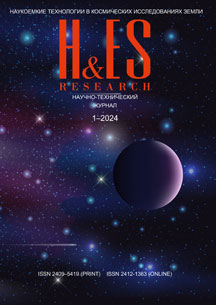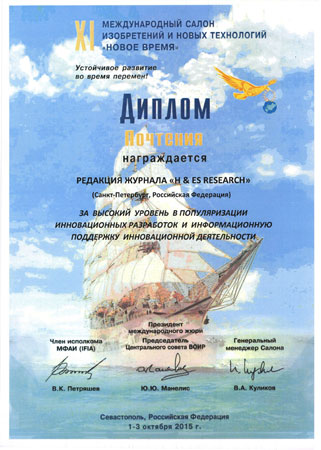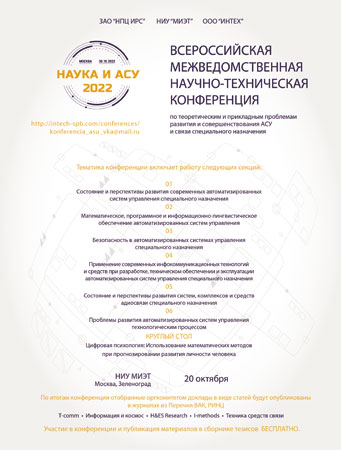The displacement of military dangers and military threats to information space and the inner sphere of the Russian Federation, activities of various destructive forces with the goal of the information impact on the population of Russia, especially young citizens, including those with the aim of undermining the historical, spiritual and patriotic traditions in the area defending the Fatherland, the widespread introduction of information technologies on the one hand and imperfection of methods of control of contamination (infection) of mass communication media with negative information on the other hand necessitate the development of technical methods and means to prevent the harmful impact of potentially harmful information on individual, group and mass consciousness of the population of Russian Federation.
The goal of the research fulfilled was to reduce the risk of negative information influence on the minds of the subjects of the mass media communications in Russia. The subject of the research are the methods of information dissemination management in social networks and other network structures. The proposed method of purposeful modification of the graph topology of social network is mainly based on the results obtained by researchers in the field of epidemiology which allow to calculate the key parameters that determine the possibility of an uncontrolled epidemic spread of the infection in biological systems. The main results obtained are algorithms for removing and adding quasi-optimal subset of graph edges based on the calculation of the maximum eigenvalue of its adjacency matrix. The advantage of the developed algorithms over the known analogues is their relatively low computational and time complexity that allows their use for the analysis of large graphs that represent certain subset of connections of the actual social network users and other participants in the mass media sphere. Practical significance for informational security of Russian Federation of the algorithms developed is their possible application for correction of mass communication network topology in order to prevent uncontrolled («epidemiological») spread of potentially dangerous information in the course of «color revolutions» scenario and during other forms of informational warfare. An optional application of the graph gelling algorithm is facilitating of counter-propaganda spread in the protected information space in order to «immunize» the key information nodes on the own territory.



















